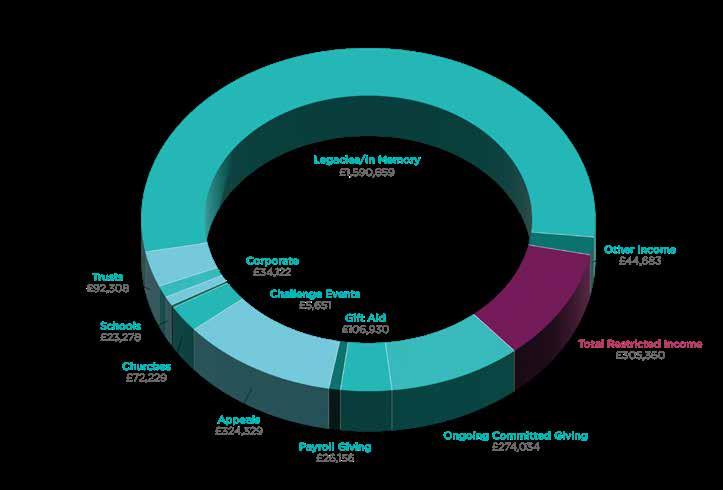Annual Review
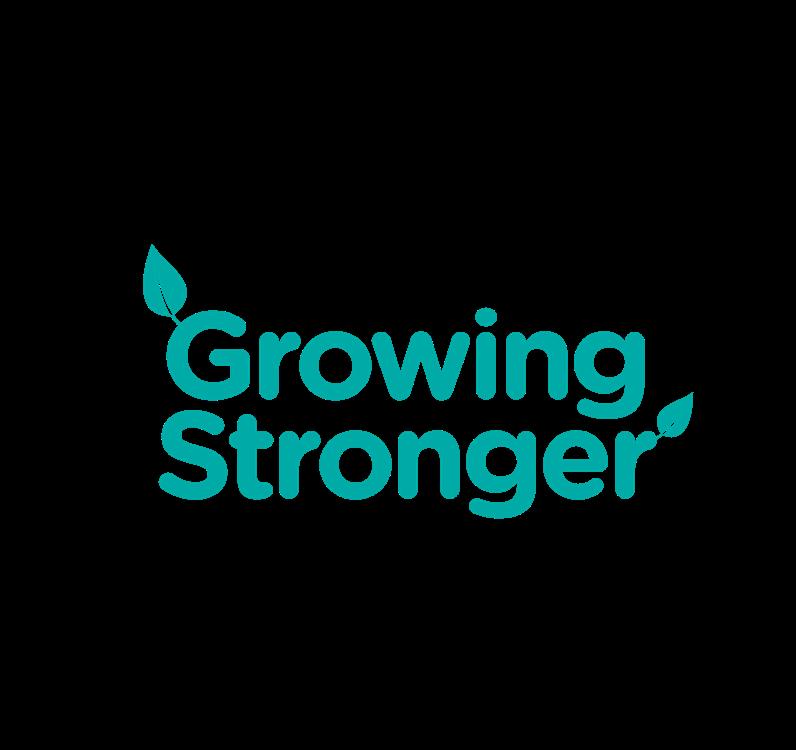

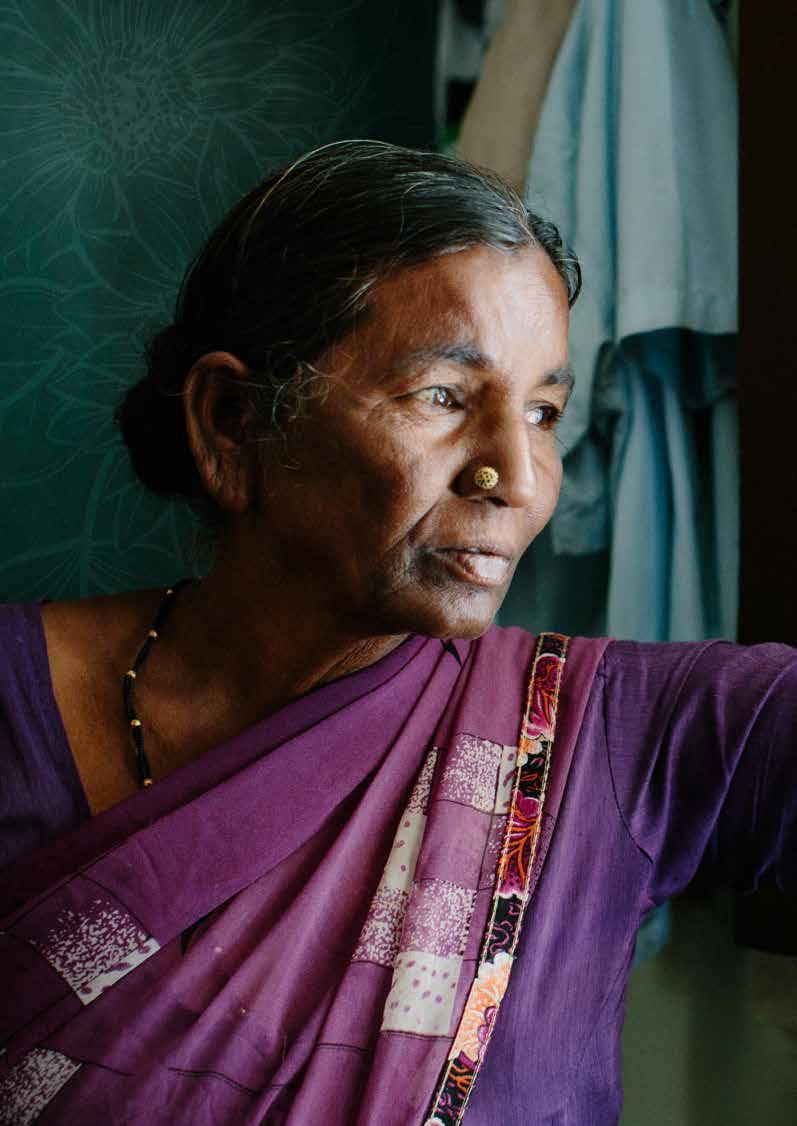
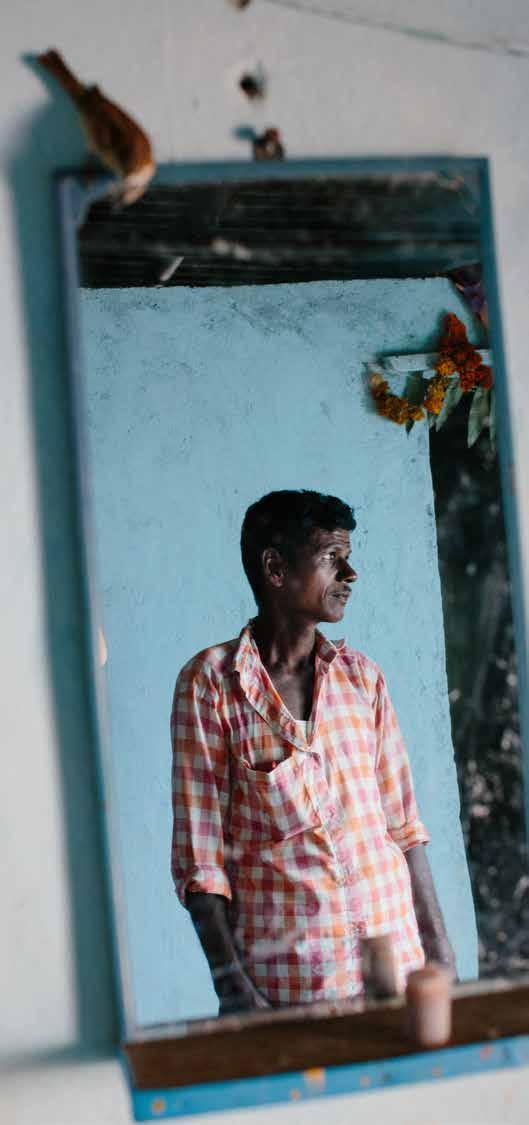


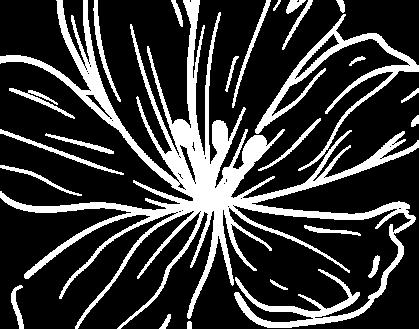








For all of us at Lepra, just as for everyone, everywhere, it was another year dominated by COVID-19. Everything we did was framed by the constant backdrop of the pandemic, as we kept on pushing through its various waves and lockdowns.

For Lepra, of course, that meant doing all we could to support people affected by leprosy and lymphatic filariasis (LF), and we pay tribute to the great work of our teams in India, Bangladesh and the UK. Their hard work ranged from providing Protective Personal Equipment (PPE), to ensuring access to COVID-19 testing and vaccinations, supplying oxygen cylinders, or providing food and financial aid for people affected by leprosy and LF.
Lepra is proud of our response to the pandemic, providing additional emergency support in addition to our core activity, whilst developing innovative new programmes. We are very aware however, that the impact of the pandemic will be felt for a long time to come.
The World Health Organisation (WHO) estimates that there was a 41% reduction in new leprosy cases detected due to COVID-19 in 2020. Our own experience from India and Bangladesh suggests that this figure could be even higher
This means that tens of thousands of new leprosy cases have not been diagnosed and treated because of the pandemic. That is tens of thousands of people who do not know for sure that they have leprosy. Tens of thousands of people at heightened
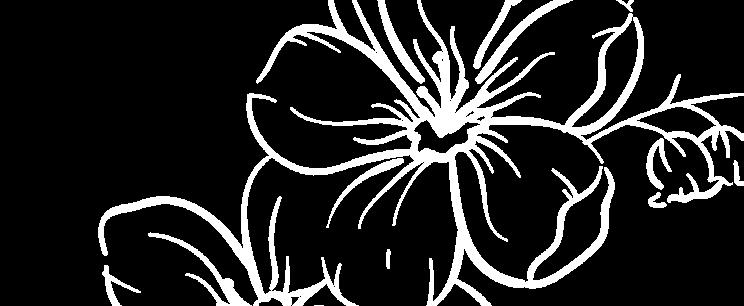
risk of disability due to leprosy. Tens of thousands of reasons for Lepra to do all we can to accelerate progress in case detection, treatment and ongoing support.
We are now gaining momentum to meet the gaps and shortfalls caused by the pandemic. We are increasing referral centre services in rural India, that were previously scaled back due to lockdowns. In Bangladesh we are forming more self-support groups and federations of people affected by leprosy and LF, so they can advocate for full inclusion in society.
The breadth and scope of our work remains impressive – not just in response to COVID-19 –and the Annual Review also details some of our key projects and approaches – always done with emphasis and focus on the individuals, the people affected by leprosy and LF; and always ensuring that we understand their particular needs and tailor our support accordingly.
None of this is possible, of course, without the commitment of our staff, supporters and partners. We continue to be honoured and humbled by their (your!) belief and support for our work. Our thanks go out to everyone who is connected with our organisation.
We also pay tribute to our outgoing Chief Executive, Geoff Prescott, who left Lepra this year after five years of stalwart service, for which we are forever grateful

We continue to do all we can to strive for a world free from prejudice and disability caused by leprosy.
Suzanne McCarthy Jimmy Innes Chair of the Trustees Chief Executive



Informed by evidence and expertise, we will shape our work to reduce transmission and the physical, psychological, social and economic impact of leprosy.
•
Wherever we work, by 2024 we will increase by 100% the detection, treatment and follow-up of people affected by leprosy and lymphatic filariasis (LF), particularly among the most neglected groups.
We will support people affected by leprosy and LF with their Physical, Psychological, Social and Economic (PPSE) needs



• By 2024 we will exceed an 80% satisfaction rate amongst people affected by leprosy and LF and ensure that 80% of their resulting PPSE needs are addressed by Lepra or others.
We will secure policy level engagement to promote the rights of people affected by leprosy
• By 2024, the rights of people affected by leprosy will be attained and we will engage at all levels to help bring this about.
April and May 2021 saw government COVID-19 lockdowns in Bangladesh and many parts of India, with the continuation of the global pandemic into its second year.
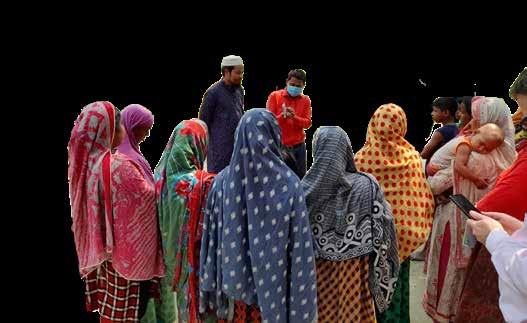

While core services were sustained in both countries, sporadic government controls led to inevitable disruption to service delivery, but also presented opportunities to develop new strategic partnerships and innovative new projects to help people affected by leprosy and LF, manage and recover from the social, emotional and economic pressures, exacerbated by the pandemic.
Alongside the maintenance of our core services in both India and Bangladesh, our staff stepped up to meet the challenges of the pandemic by providing a range of support, from COVID-19 testing, personal protective equipment, nutritional support, cash assistance and, when they became available, COVID-19 vaccinations.
In addition to the physical aid provided, Lepra staff, local NGO partners and community groups advocated directly with government to ensure people affected by leprosy and LF were not forgotten during this challenging period and had equitable access to vaccinations.
In India, we also worked with an organisation called Mission Oxygen, to supply 80 Oxygen Concentrators to 8 Government Hospitals across Andhra Pradesh and Telengana, 5 of which also accommodated a Lepra referral centre.
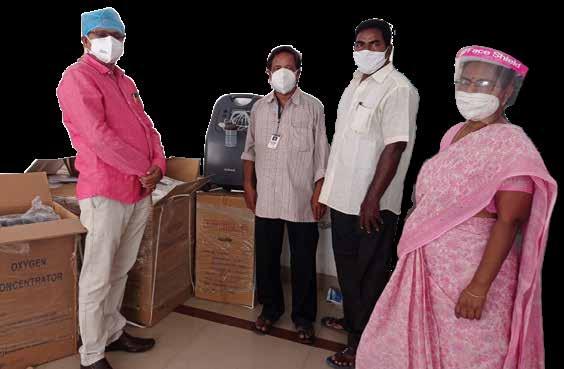
In Bangladesh an evaluation of the third, three year phase of the Proyash Health System, Strengthening Project, implemented together with The Leprosy Mission International and Effect Hope, highlighted the significant achievements of this intervention, notably in building the capacity of government health staff at all levels, national to local. Looking forward to a fourth and final phase, the suggestion is that focus be shifted to strengthening the voice of people affected by leprosy and LF and their demands for services and support, amplified through groups and federations of people affected by these two diseases.
Research in India into the risk of disability after Multi Drug Therapy (MDT) treatment of leprosy, funded by the Robert Luff Foundation, was taken into a further phase and a new geographic area of study, after the initial findings suggested that disability can still occur many years after treatment and therefore long term patient follow up may be required.
With respect to Lepra’s outward facing advocacy work, the year saw engagement in the drafting of the WHO NTD 2021-2030 Roadmap and the new 2021-2030 Global Leprosy Strategy. Lepra also engaged with the International Federation of Anti Leprosy Associations (ILEP) on the Federation’s 2021-25 Strategy. In all three cases we advocated, with some success, for a greater emphasis on Active Case Finding, for the early detection, before disability, of people who might have the disease and, in parallel, Health System
Strengthening, to ensure that these people, when referred to a government or private health centre, receive an accurate diagnosis and quality, effective treatment for their condition.
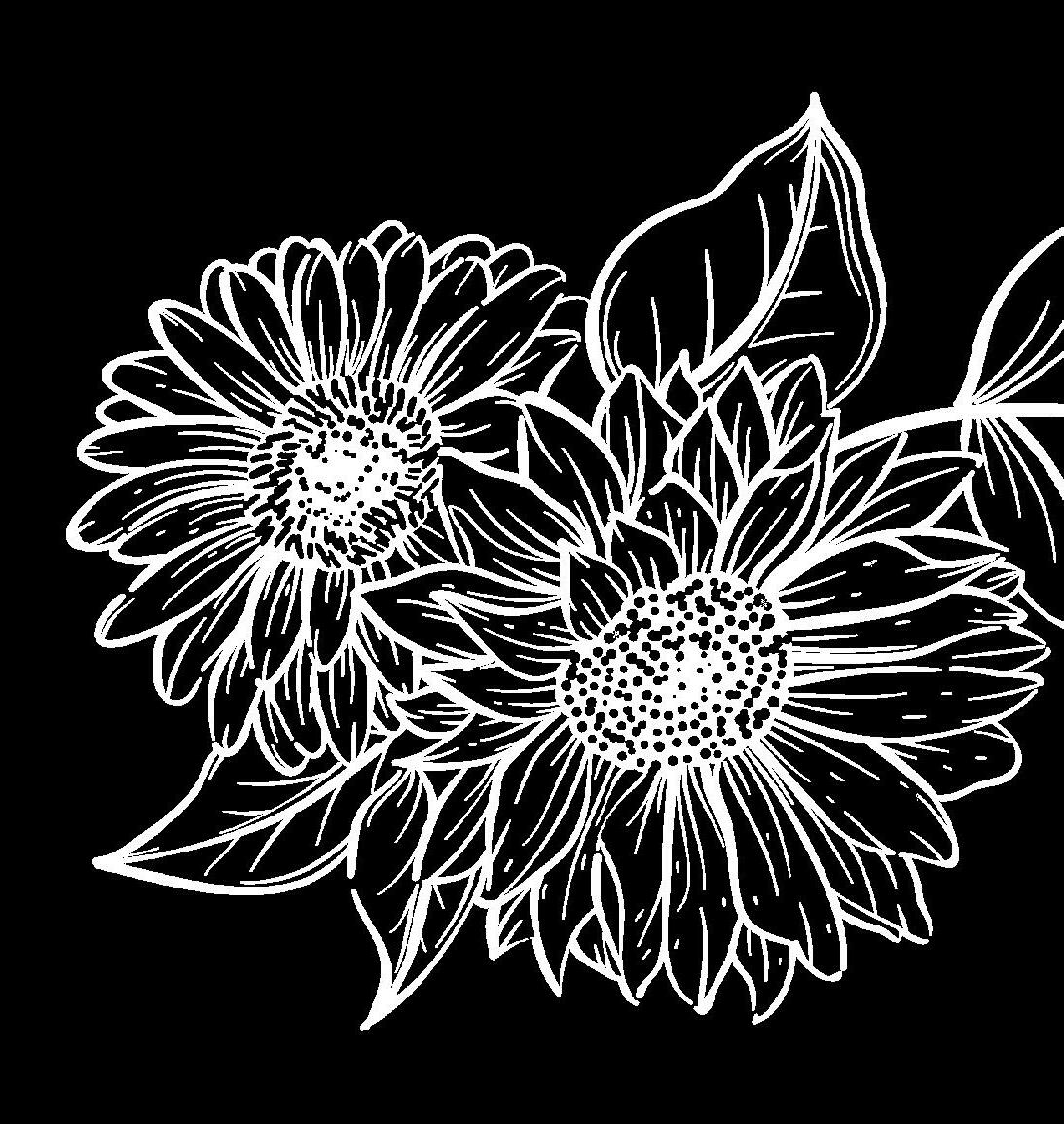
With your kindness and support, Lepra’s programmes in India and Bangladesh, have continued to reach thousands of the world’s forgotten people, despite the challenges of COVID-19.
Together we diagnosed and provided services for 2,292 people with leprosy.

We trained 14,885 front line community health workers, teachers and volunteers.

We diagnosed and provided services for 1,394 people with LF.


We issued 26,277 pairs of protective sandals




We helped 9,229 people with leprosy and LF access government grants and support.
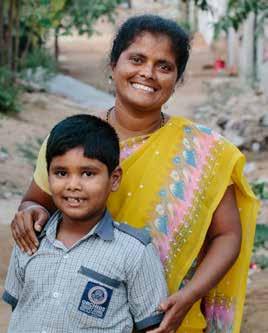
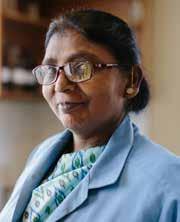
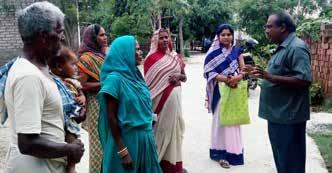
We trained 33,539 people to practice self-care for their condition at home.
We facilitated 163 hydrocele operations.
for people affected by leprosy and LF.


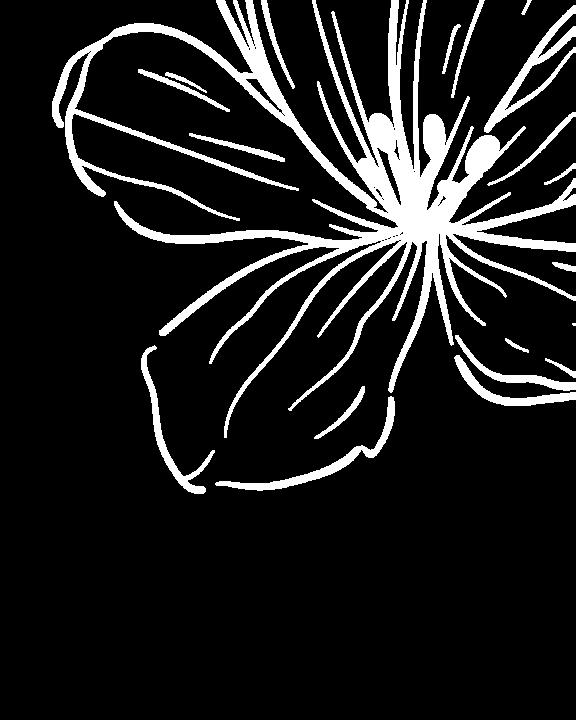
We reached a total of 376,222 people in the community through health education, and events to raise awareness of leprosy and other neglected diseases.
We provided 3,321 mental health counselling sessions to support those suffering from anxiety and depression as a result of their condition.

We supported 691 self-support groups.
We reached 406,275 people, providing diagnosis, treatment and holistic care.

279 people affected by leprosy received reconstructive surgery to restore the movement and appearance of their hands and feet, reducing prejudice and rebuilding their selfesteem.
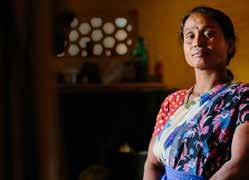
4,037 people took part in meetings to advocate for their rights.

vaccinated 17,987 people against COVID-19 and conducted 1,575 PCR tests.
people received food support.
We trained 10,373 government health staff.

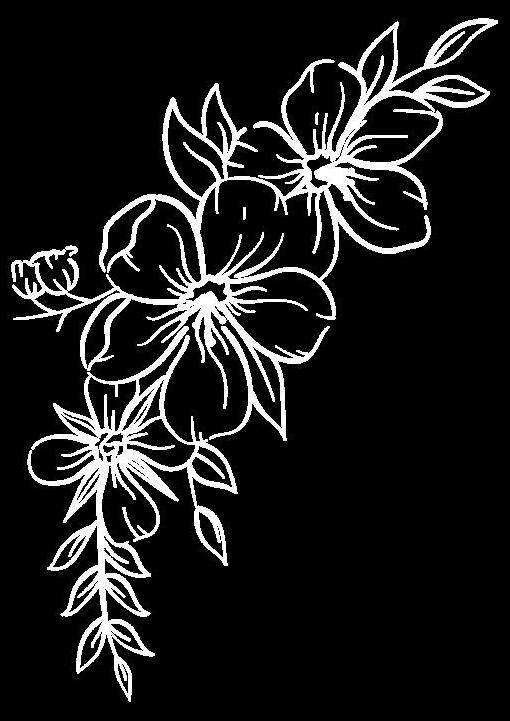
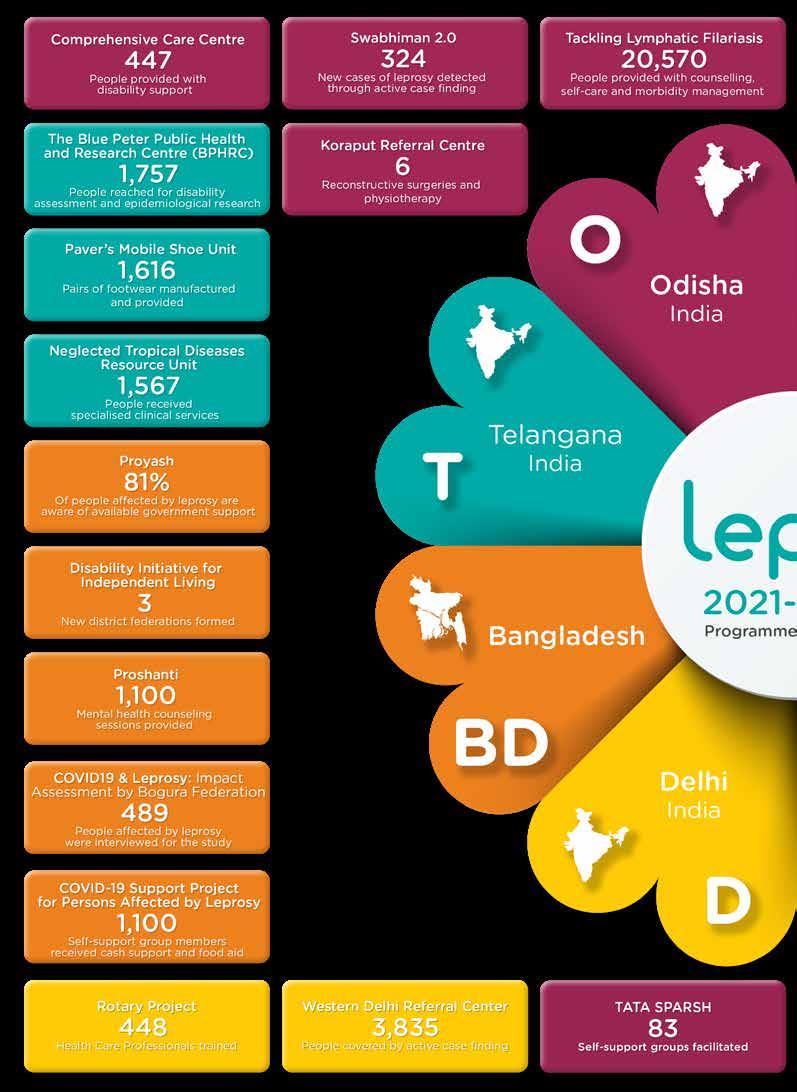


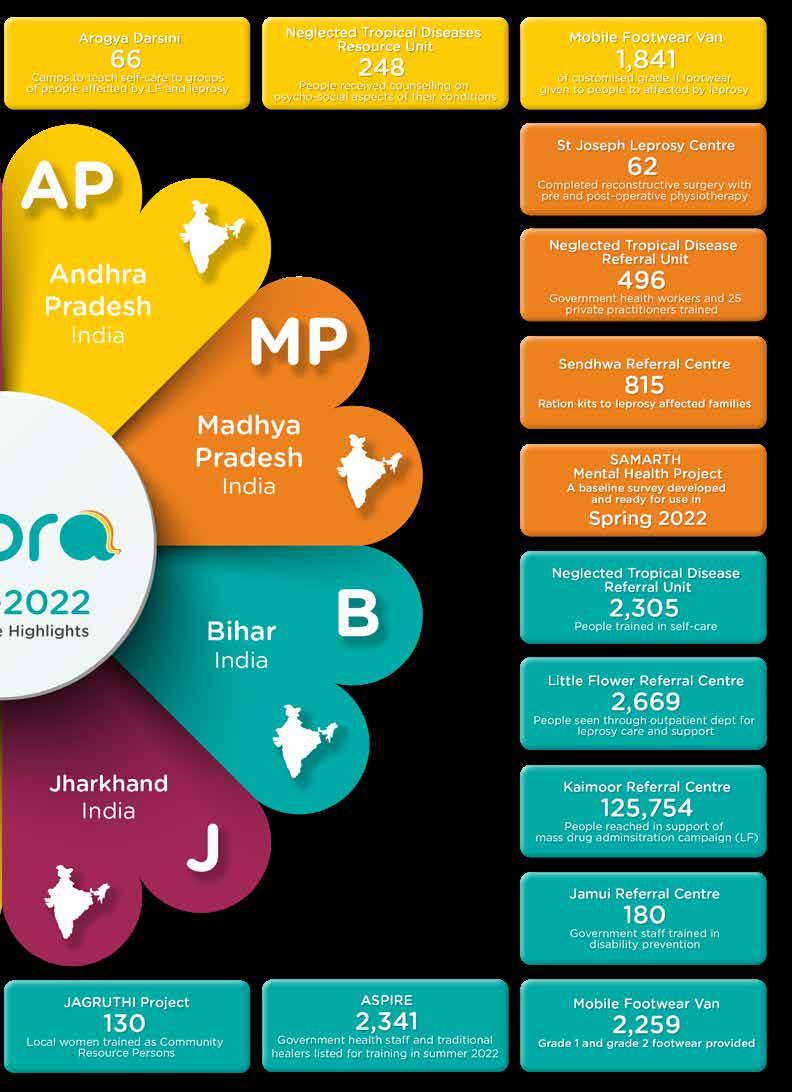
As LEPRA Society’s State Coordinator in Bihar, India, Rajni and his team were on the front-line of healthcare in one of the worst-affected countries in the world during the COVID-19 pandemic.
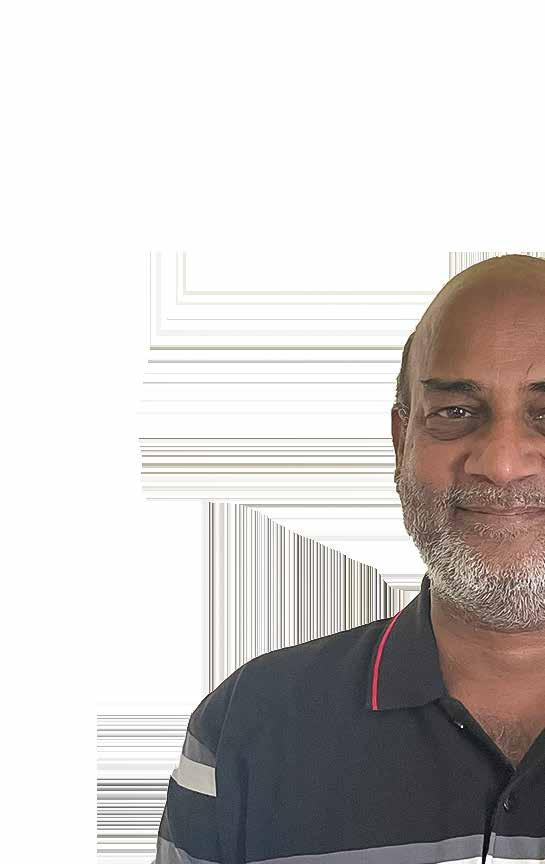
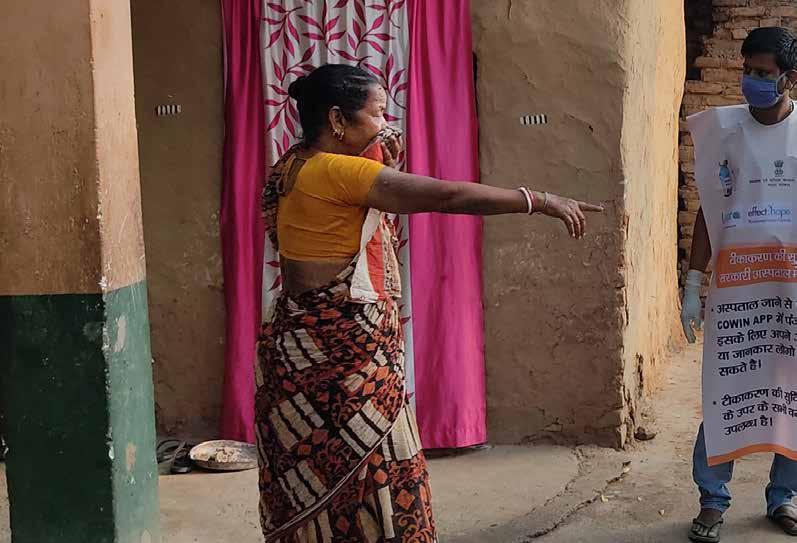
Rajni offers a unique perspective of this period, not only as an employee of LEPRA Society, but also as an individual who himself had battled lymphatic filariasis (LF).
The second most populated country in the world, India’s healthcare system faced collapse under the strain of COVID-19. When the Indian government announced the first lock-down on the 22nd March 2020, Rajni’s first thoughts were for those who he and his team supported.
“What is going to happen to my people? Those who need treatment every month?”



The team very quickly realised how important LEPRA’s response would be. With shortages of food, medication and personal protective equipment (PPE), the situation was becoming critical.
“We had to do something, so with the help of the State’s Leprosy Coordinator, we got permission to travel across Bihar to provide support. We were able to deliver
When reflecting on the pandemic, Rajni turned to the positives that came out of this terrible time. He describes with great pride, the courage of his team and how they worked tirelessly through the crisis, with little food and very few opportunities to rest and recover themselves. There was also a great deal that the team learnt from the pandemic.
“Our rapid provision of food and medical supplies was vital to the success of our response, but education also played a very important role in helping us get through this disaster”.

Through 2020-2021, Lepra also provided 12,364 food and PPE care packages and over 5,500 COVID-19 tests to help battle the disease. On behalf of the people we support, we pay tribute to the incredible work and personal sacrifice of Rajni and his team, as well as the countless aid workers, medics and support staff that continued their work during this unprecedented crisis.

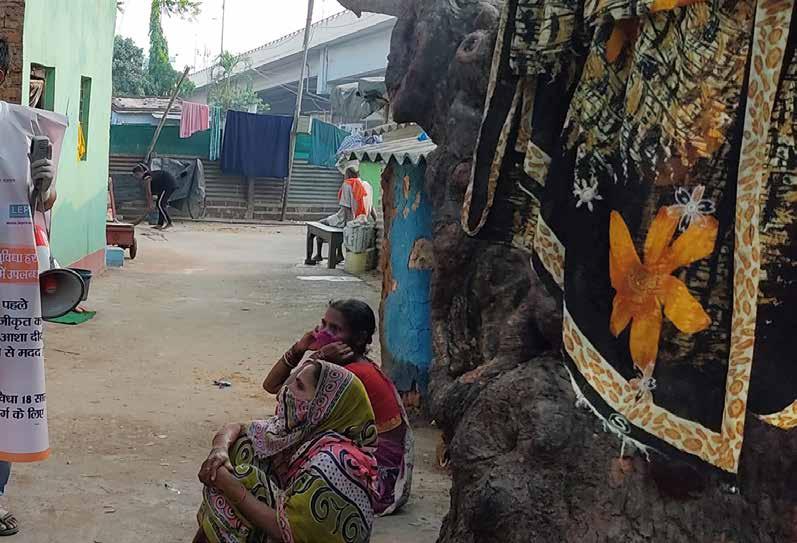
Their courage and fortitude provides an example to us all, and shows what can be achieved when we foster the sense of purpose, belonging and family that our amazing colleague and friend Rajni has shown throughout his incredible career.
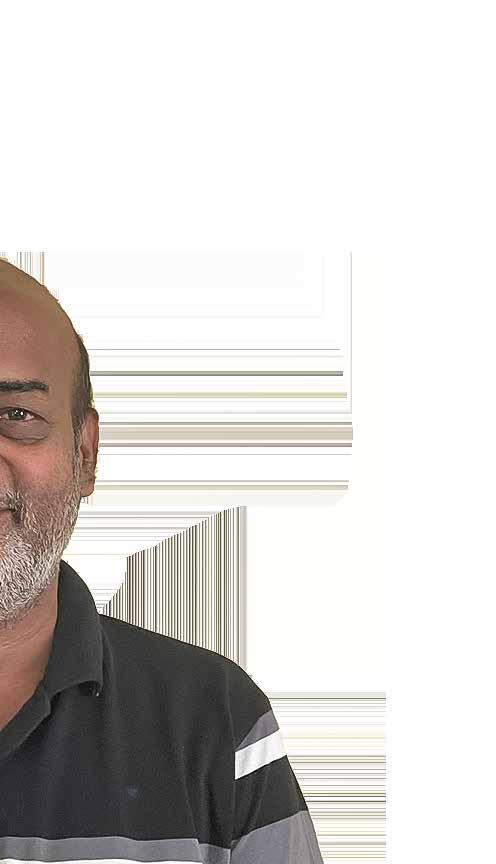



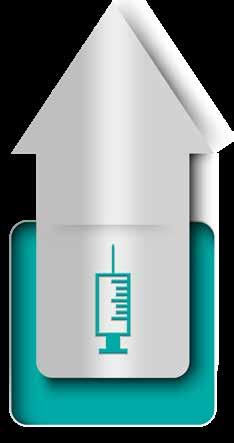
The COVID-19 pandemic was a significant social and economic catastrophe, which systematically exposed and exacerbated the exclusion of the under-privileged and marginalised communities. India’s second wave of COVID-19, caused a massive surge in infections and deaths.

The unprecedented public health emergency and subsequent lock-downs disproportionately impacted people affected by leprosy and LF. COVID-19 vaccinations became a major humanitarian priority for both the public and private health sectors. However, people affected by leprosy often faced delays in receiving the vaccine, with the pandemic only adding to the neglect and exclusion already faced by so many.
The emergency vaccination programme, funded by Lepra and Effect Hope provided vaccinations across 6 states in India (Andhra Pradesh, Bihar, Jharkhand, Madhya Pradesh, Odisha and Telangana) for over 17,987 people
Reaching the most vulnerable communities, in remote and rural areas, Lepra ensured that those people most in need had reliable and trusted information to help
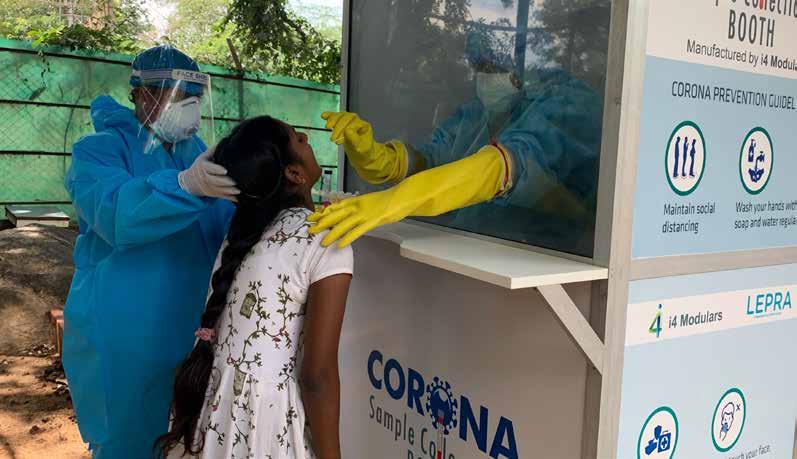




During the pandemic, Lepra, with the support of the District Leprosy Officer and funded by Effect Hope, provided vital information and support around the importance of receiving COVID-19 . Many people in the community were hesitant and had concerns about the safety and efficacy of vaccination. Lepra’s intervention helped people affected by leprosy make informed choices about obtaining vaccinations. Transport to the vaccination centre was also provided for people who were unable to make the long journey because
Mr and Mrs Gauda’s visit to the vaccination centre in Nabarangpur took less than 2 hours to complete. They are very happy that they are both fully vaccinated and were extremely grateful for the service they received.

trusted community approach, with funding from Effect Hope has helped people affected by leprosy living in isolated communities, access lifesaving vaccines, practical support and assistance COVID-19 support programme

In addition to the physical implications, prejudice, fear and a lack of knowledge can lead to further secondary harms such as social exclusion, the loss of income, employment and the breakdown of family life. As a result, over 50% of people with newly diagnosed cases of leprosy and LF, will develop anxiety and/or depression.
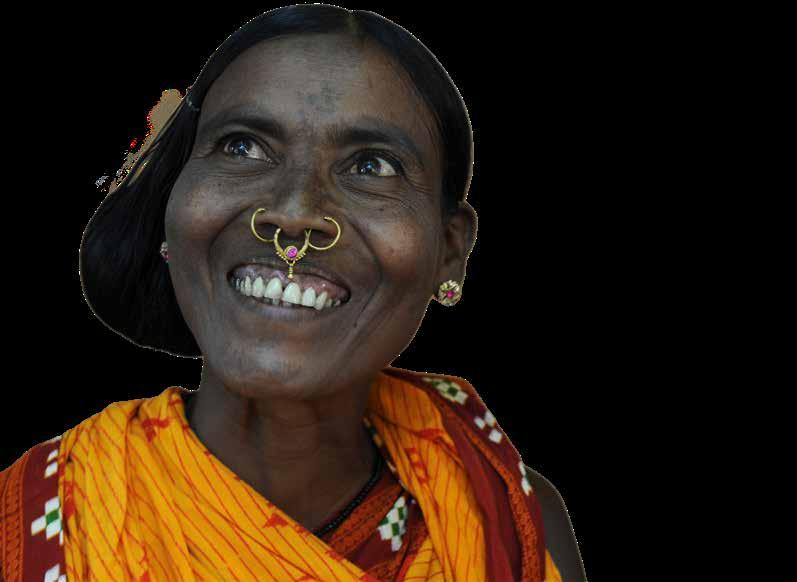

The Mental Motivators project was developed to create an inclusive and sustainable, community led support mechanism designed to improve the mental health and quality of life for families.
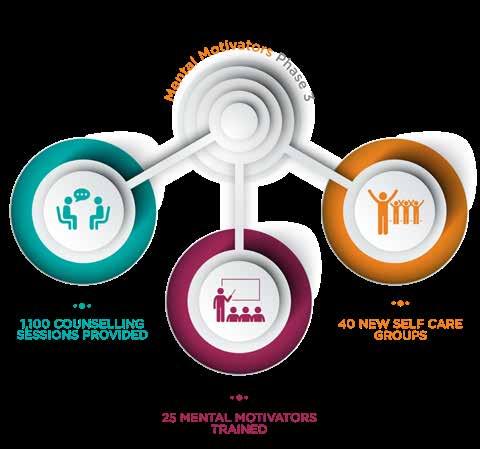
Following Lepra’s person centred, holistic approach, the project aims to enhance selfesteem, status, social interaction and inclusion within people’s immediate community and wider society, to help people gain assess to public and private opportunities and services.
including stress management, listening skills and low level support for managing depression and anxiety.

The emotional impact of a leprosy or LF diagnosis can be severe.

Taslima is a 22-year-old woman currently working as a Mental Motivator in Bangladesh. She was diagnosed with leprosy and following a course of multi drug therapy, she was completely cured.
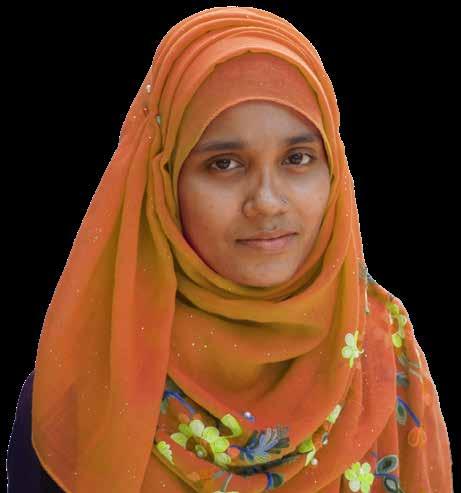
Taslima decided to become a member of a local self-help group and received training to become a Champion, giving her the confidence to speak in meetings and actively educate people on the symptoms of leprosy.
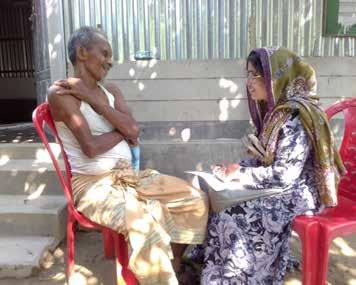
Lepra introduced the Motivators project as a way of further helping those impacted by leprosy. Lepra have trained 40 people in 2021-2022 to become Mental Motivators.
People like Taslima trained in basic mental health care and provide support, counselling and referrals for those suffering because of leprosy.
Leprosy goes far beyond physical disabilities and can have a massive impact on people’s mental health and well-being

Baillie Gifford have been supporting our work for 3 years, with their powerful support enabling the launch of our Mental Motivators pilot project in Bangladesh.
This project is increasing mental health support to those affected by leprosy and the 50% of people with leprosy who suffer from related depression or suicidal thoughts.
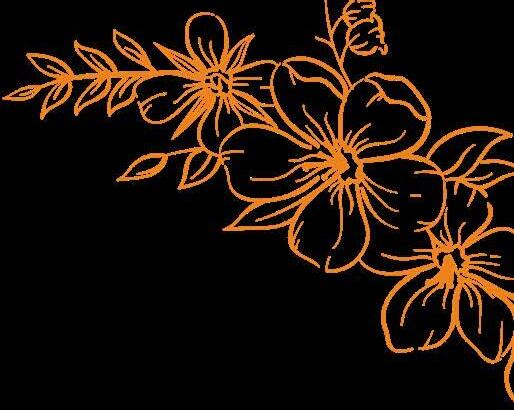
We are delighted to collaborate with Baillie Gifford on this partnership, and are working tirelessly to ensure that this vital funding provides mental health training to help build self-esteem and allow those affected by leprosy to feel supported both physically and mentally
With no-one to talk to about their condition or fears, those affected by leprosy or lymphatic filariasis can become isolated, taking less interest in self-care, thus exacerbating both the physical and psychological symptoms associated with these diseases.
Taslima is now in her final year of studying a BSc and has been Bogura district as the secretary of a local self-help group.
feels that it is very tough work as people have limited knowledge about mental health in Bangladesh.
She has also recognised that mental health is a very important aspect of someone’s life,

“Life is worthless without good mental health”
COVID-19 presented a significant challenge for specialist healthcare provision across the world, but Lepra’s innovative approach presented an opportunity to pioneer a new holistic model of care, for a post-COVID landscape.
People living in to the risk of acquiring six out of the ten skinrelated Neglected Tropical Diseases (NTDs), as determined by the World Health Organization. This includes leprosy, lymphatic filariasis (LF), post-kalaazar dermal leishmaniasis (PKDL), cutaneous leishmaniasis (CL), scabies and fungal diseases. All these diseases show symptoms on their skin and therefore are similar.
Significant prejudice and socio-economic problems are associated with these diseases. For skin-NTDs, early detection is prevent irreversible damage to physical health, mental health and well-being, as well as the social consequences associated with these diseases..
With no obvious symptoms in the early stages, people tend to seek help late when symptoms have appeared or worsened. This can result in disabilities that often require corrective surgery. Currently, only leprosy, LF and PKDL have formal protocols for disease control and management in India. However, these diseases are still far from being controlled. There are surveillance systems disease in India, putting the burden on patients.
Through community awareness campaigns, ASPIRE aims to reach living in Jamui District over the course of the project. The aim is to raise awareness of the early signs and symptoms of the six skinNTDs, where to seek help, and to reduce the social myths around the diseases.
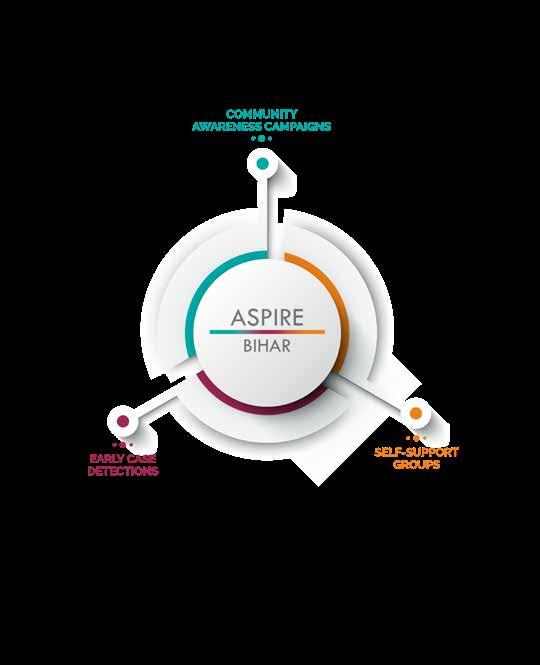
The empowerment of self-support groups to create a support system for home-based, self-care practices will be key to 5,000 people over the project’s 5 year lifespan. In addition, two disease management and disability prevention units have been created to provide severe complication management, appropriate footwear, mental health education and mentoring. The centres also provide an important point of contact with District Hospital practitioners for advanced
The Canadian charity Effect Hope is a long standing funder of Lepra’s work in India and Bangladesh.



One of the most significant projects on which we have collaborated is a leprosy health system strengthening project in Bangladesh, called Proyash, which started in January 2013 and is now in its fourth and final phase. Over this period the project has progressed from the establishment of national level government leprosy guidelines and reporting templates, to the training of field level government health workers and is now culminating in the facilitation and strengthening of local group of people affected by leprosy.
Elsewhere, in India, Effect Hope has also supported a range of innovative projects focussed upon people affected by leprosy and lymphatic filariasis and the promotion of new ideas and good practices has become a core foundation of our relationship.
Iwas excited to have the opportunity to visit a village called Raichor in Jhajha, Bihar where we conducted the Rapid Enquiry Survey and Contact Survey as part of the ASPIRE project activities. It was enlightening to witness how new cases are found at different stages of the disease and how these cases are validated.
In Raichor, the ASPIRE project staff validated almost 14 cases out of 550 people living in that village. The project staff informed us that when they conduct a contact survey in any village, they take the Information, Education and Communication (IEC) van, to ensure people are well-informed about the disease symptoms, and how to report if they suspect they are showing any of these symptoms. The IEC van also shows informative videos and movies about leprosy and other diseases.
During the visit we spoke to the project’s Accredited Social Health Activists (ASHAs)
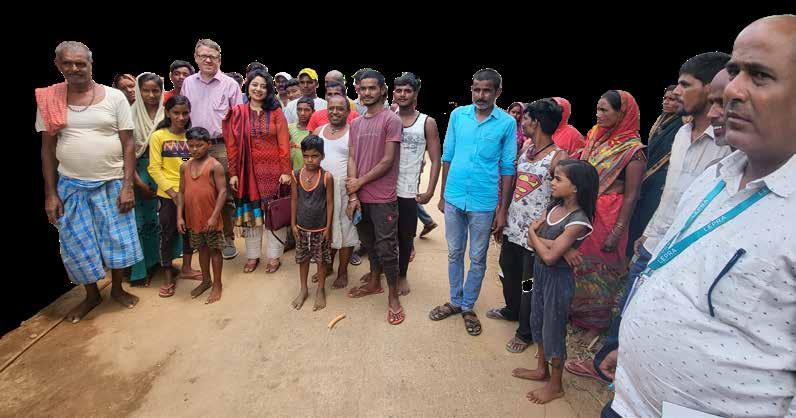


options. They also provide first-hand support to people affected by skin-related NTDs. ASHAs play a vital role to the long term sustainability of the project, working within their own community, their presence provides an important link to accessing appropriate healthcare and longer term support
We also had the opportunity to visit two referral centres (RC); Jhajha and Jamui Sadar RC, where cases are referred for further treatment. These referral centres are properly equipped with necessary medications, and health care staff to treat the patients. Jhajha RC even has a footwear unit where people affected by leprosy and LF can receive customised footwear which are expertly made on demand by a shoe technician based in the referral centre.
As we wanted to gain a better understanding of the current situation in Bihar, we met with a local Civil Surgeon (CS) and the Additional Chief Medical Officer (ACMO). They informed us of their role in treating these cases and the next steps to take in controlling diseases like leprosy as Bihar is known as the most endemic area out of all states in India.
Key to longer term improvement and sustainability, is a collaborative approach between the community, government, local healthcare and NGOs. ASPIRE provides a blueprint for this innovative approach, which is already being replicated further afield.

It was an enlightening experience to see first hand, how the ASPIRE project is rolling out in Bihar. Our dedicated teams are working round the clock to ensure the successful delivery of the project and making sure the people we support are receiving

Lepra’s Programme Manager for India, recently visited Bihar, to meet the team and the people the project supports...
“Among all of Lepra’s programmes, the ASPIRE project has a uniquely special place in my heart, as I have been involved from the inception, shortly after I joined the Lepra programmes team.”

We think very carefully about where we spend your money and what we commit our money to.
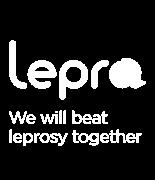


For every pound of income from donations, funding and grants, 92p goes directly to supporting the world’s most vulnerable people.

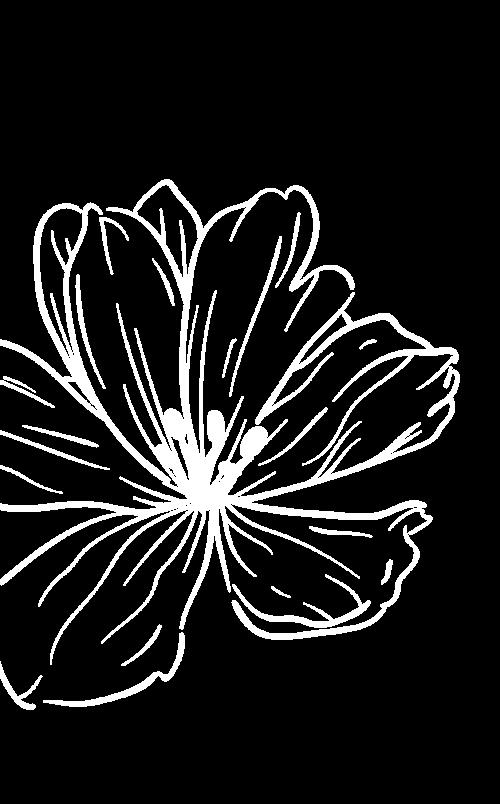
The rest goes towards raising the next £1!
